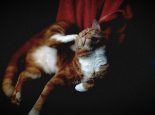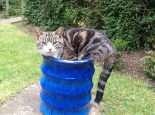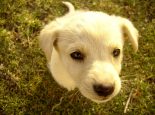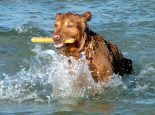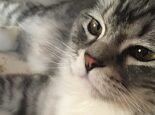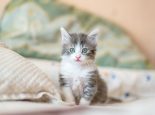A vet’s diary: small furries!
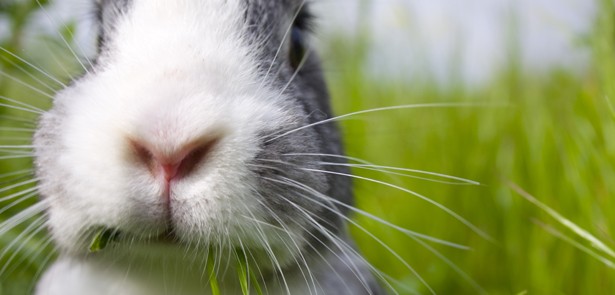
Peterborough vet Laura Frost describes a typically unusual day at the practice...
In the veterinary profession things seem to come in runs. There are days when we manage to have four black Labradors booked in for different procedures, or afternoons when every patient I see has a cough. I once remember doing two splenectomies in 15 hours. On another occasion I had two caesareans and one normal birth in one weekend. A total of 15 puppies!
There are quiet days and busy days: the steady day just doesn’t seem to exist. As usual, the Easter bank holiday was followed by a busy week and this time the themes were exotic creatures and unusual visits. In the practice, waiting for their surgical procedures were two guinea pigs, a rabbit and a ferret. Not a single cat or dog booked in that day for operations. The rabbit was in for neutering, which in itself it quite common. However there was some gender confusion (Harry became Harriet, and the castration became a spay). The guinea pigs came from a charity called the Cambridge Cave Trust, a local charity that helps to find practices that are knowledgeable about guinea pigs and helps to care for them after surgery.
The first ‘squeaky pig’, as we fondly call them, had a large lump to the mammary gland (breast tissue) which was in danger of becoming ulcerated and infected. The other had a large abscess under its chin. Guinea pigs manage to make the thickest pus imaginable. Instead of simply lancing the abscess like we might in a cat, we need to shell out like removing a lump. Bearing in mind this abscess had got to the size of a plum (on the chin of a 0.5kg guinea pig), this was a bit of a challenge. Once removed both little fellows went back to the Cambridge Cave Trust to rest and rehabilitate before being returned in full health to their owner.
The ferret was here for a vasectomy, a very delicate operation, in which the vas deferens, the tube that sperm travel from the testicles to the penis, is cut. The ferret reproductive cycle is unusual. Female ferrets (or gills) will not ovulate unless they are mated, which means they have a prolonged season. The prolonged hormones, mainly oestrogen, puts their health at serious risk; they can become very anaemic and can even die. Some people choose to have them spayed to avoid seasons altogether, but another option is to have a vasectomised male. This owner had five female ferrets so the vasectomy was a sensible financial option. (Even if it did mean we needed to get our magnifying lenses out and have the steadiest of hands.)
Small furries need very special care under anaesthetic. Their small body size means that they lose heat very quickly. To help them stay toasty and warm, we use heat pads, ‘hot hands’ – which are gloves filled with hot water – and sometimes even wrap their feet in bubble wrap. They also need very careful monitoring after their procedure. Sometimes they can take a while to wake up and need lots of encouragement to eat afterwards. Our nursing team were certainly busy that day. It is a good job they can be bribed with frequent cups of tea and biscuits.
Later that afternoon we had an African grey parrot (not a tame one) in for a nail clip. Let me tell you, the noise they can make when they are angry is quite incredible. I felt sorry for anyone in the waiting room. Despite the noise, all we were doing was giving a manicure!
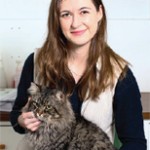 Laura Frost MRCVS MA VetMB is a vet at local veterinary practice Pengelly and Mizen
Laura Frost MRCVS MA VetMB is a vet at local veterinary practice Pengelly and Mizen
Pengelly and Mizen Veterinary Surgeons, 89-93 Park Road, Peterborough PE1 2TR T: 01733 554953. Emergencies only: 01733 896000. www.pengellyandmizen.co.uk








